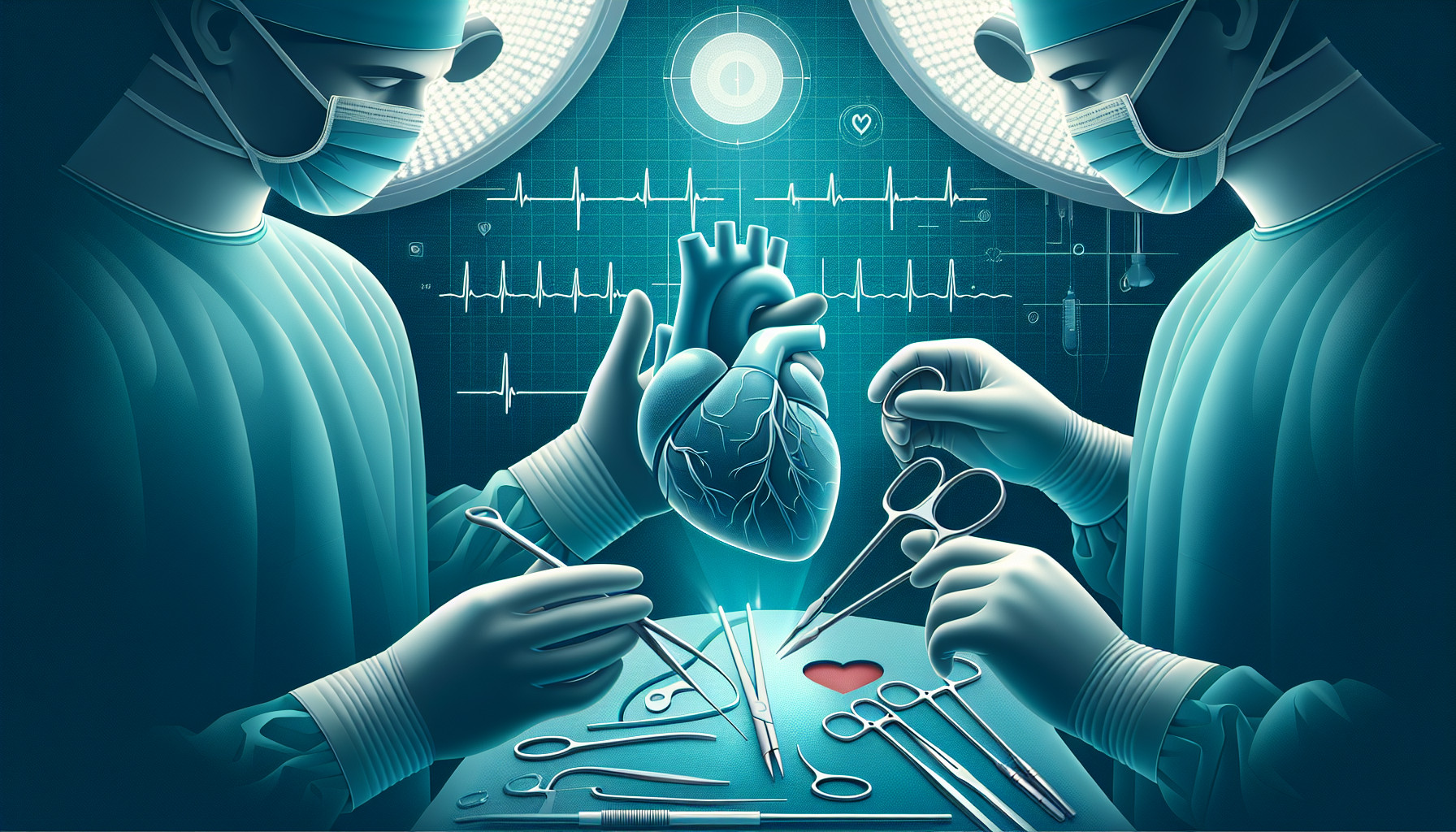Our Summary
This research paper is a review of 14 studies that looked at what factors can predict the likelihood of a person having a stroke during or after heart bypass surgery (CABG). The studies showed that the risk of stroke after such surgery varied between 1.1-5.7%. Between 37-59% of strokes happened during the surgery itself.
The research found seven key factors that were most consistently linked with an increased risk of stroke during or after this surgery. These were: being older in age, having had a stroke or disease affecting the blood vessels in the brain before the heart surgery, having had a narrowing of the carotid artery (the main blood vessels in the neck that supply blood to the brain), having disease in other peripheral blood vessels, having unstable chest pain before surgery, having a longer than normal time on a heart-lung machine during surgery, and having an irregular heart rhythm after surgery.
The study found no link between high cholesterol levels, previous heart attacks, or smoking and an increased risk of stroke. Other factors, such as gender, high blood pressure, diabetes, heart failure, and kidney disease showed mixed results across the different studies.
The authors suggest that future research should use validated scales to assess the impact of strokes after heart bypass surgery, to give a more detailed picture of the problem. They also suggest that the findings from this review could help to improve the design and relevance of future studies into this area.
FAQs
- What factors were found to increase the risk of stroke during or after heart bypass surgery?
- Was there a link found between high cholesterol levels, previous heart attacks, or smoking and an increased risk of stroke after CABG?
- What are the recommendations made by the authors for future research into strokes after heart bypass surgery?
Doctor’s Tip
A helpful tip a doctor might tell a patient about CABG is to discuss any previous history of stroke or diseases affecting the blood vessels in the brain before the surgery. It is important to address any risk factors that may increase the likelihood of a stroke during or after the procedure. Additionally, maintaining a healthy lifestyle and following post-operative care instructions can help reduce the risk of complications.
Suitable For
Patients who are older, have a history of stroke or vascular disease, have carotid artery narrowing, peripheral vascular disease, unstable chest pain, prolonged time on a heart-lung machine during surgery, and irregular heart rhythms after surgery are typically recommended for CABG. Other factors such as high cholesterol levels, previous heart attacks, and smoking may not necessarily increase the risk of stroke during or after surgery. Further research is needed to better understand and predict the likelihood of stroke in patients undergoing CABG.
Timeline
Before CABG:
- Patient undergoes various diagnostic tests to determine the severity of their coronary artery disease
- Patient may be prescribed medications to manage symptoms and reduce the risk of complications
- Patient may undergo lifestyle changes such as diet and exercise modifications
- Patient may receive counseling and education about the surgery and what to expect
During CABG:
- Patient is put under general anesthesia
- Surgeon makes an incision in the chest and opens the rib cage
- Surgeon takes a healthy blood vessel from another part of the body and attaches it to the blocked coronary artery to bypass the blockage
- Patient is monitored closely throughout the surgery for any complications
After CABG:
- Patient is taken to the recovery room and closely monitored for any complications
- Patient may need to stay in the hospital for a few days to a week for observation and recovery
- Patient may be prescribed medications to manage pain, prevent infection, and reduce the risk of complications
- Patient will be given instructions on how to care for themselves at home, including wound care, diet, exercise, and follow-up appointments with their healthcare provider.
What to Ask Your Doctor
- What is my individual risk of having a stroke during or after CABG surgery based on my medical history and current health status?
- Are there any specific factors in my medical history, such as a previous stroke or carotid artery disease, that may increase my risk of stroke during or after surgery?
- Will I need to undergo any additional tests, such as a carotid ultrasound, to assess my risk of stroke before the surgery?
- How will my risk of stroke be monitored during the surgery, and what steps will be taken to prevent a stroke from occurring?
- If a stroke does occur during or after surgery, what are the potential long-term consequences and how will it be treated?
- Are there any lifestyle changes or medications that can help reduce my risk of stroke before and after CABG surgery?
- What is the overall success rate of CABG surgery in patients with a history of stroke or other risk factors for stroke?
Reference
Authors: Mao Z, Zhong X, Yin J, Zhao Z, Hu X, Hackett ML. Journal: J Neurol Sci. 2015 Oct 15;357(1-2):1-7. doi: 10.1016/j.jns.2015.07.006. Epub 2015 Jul 4. PMID: 26208801
